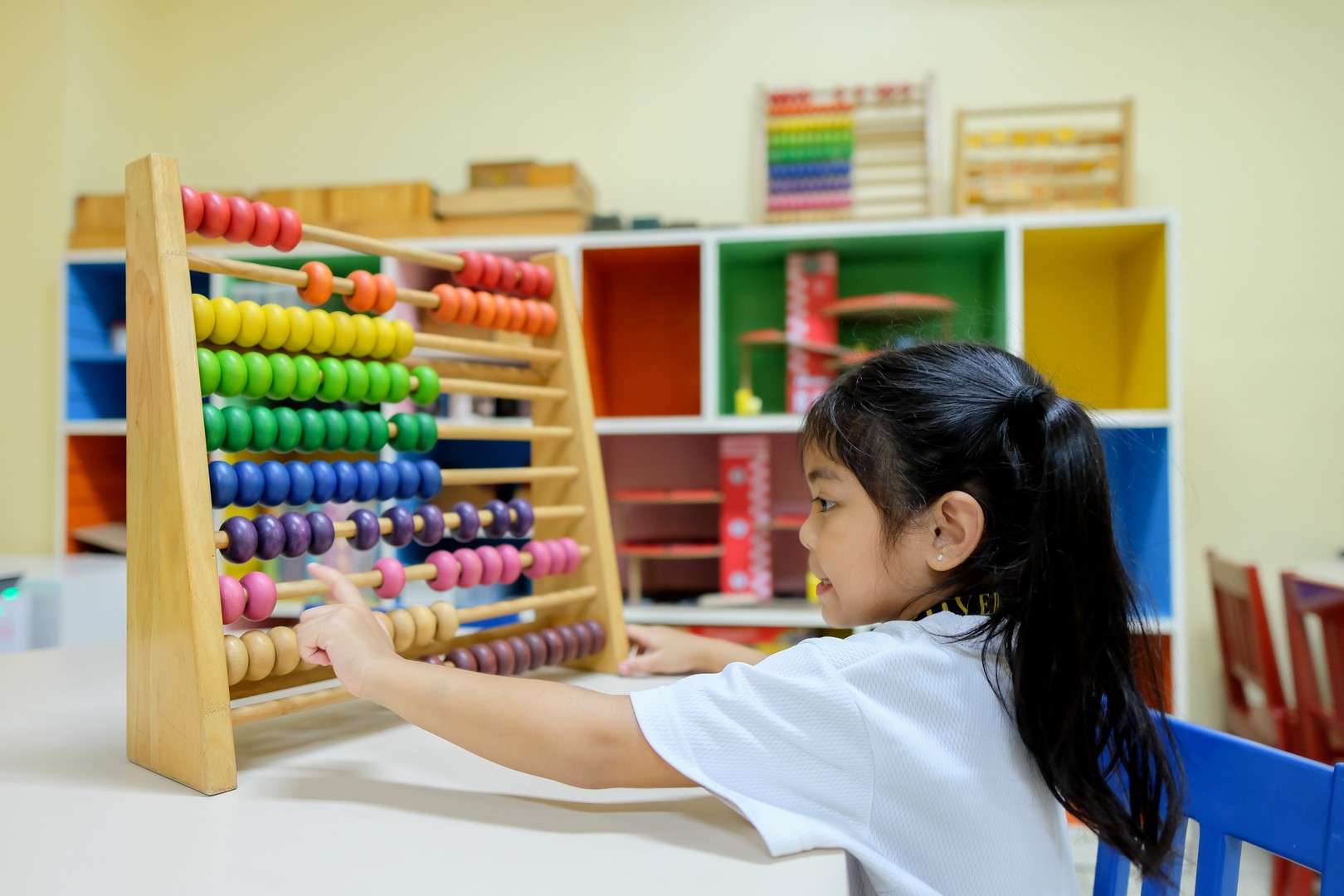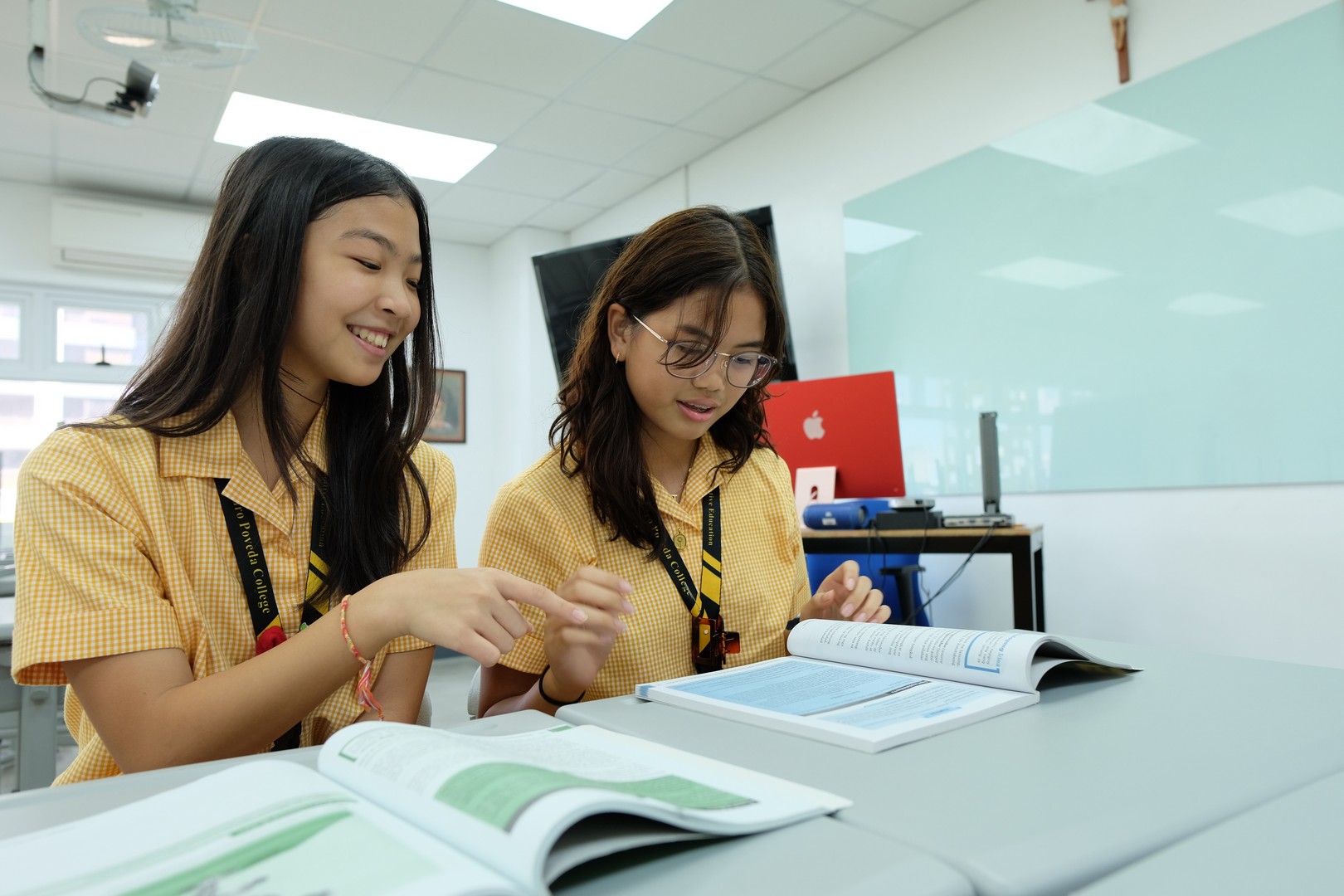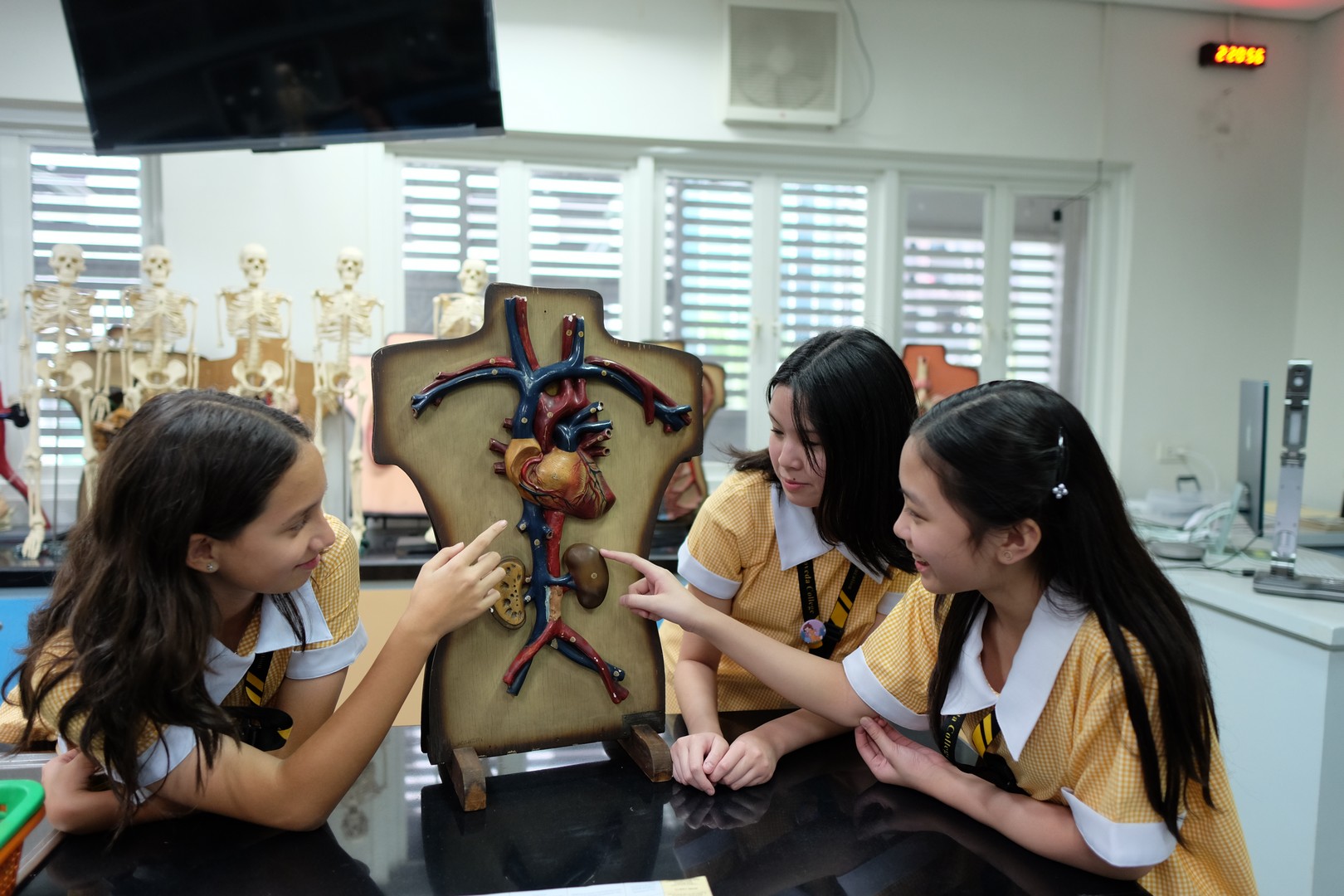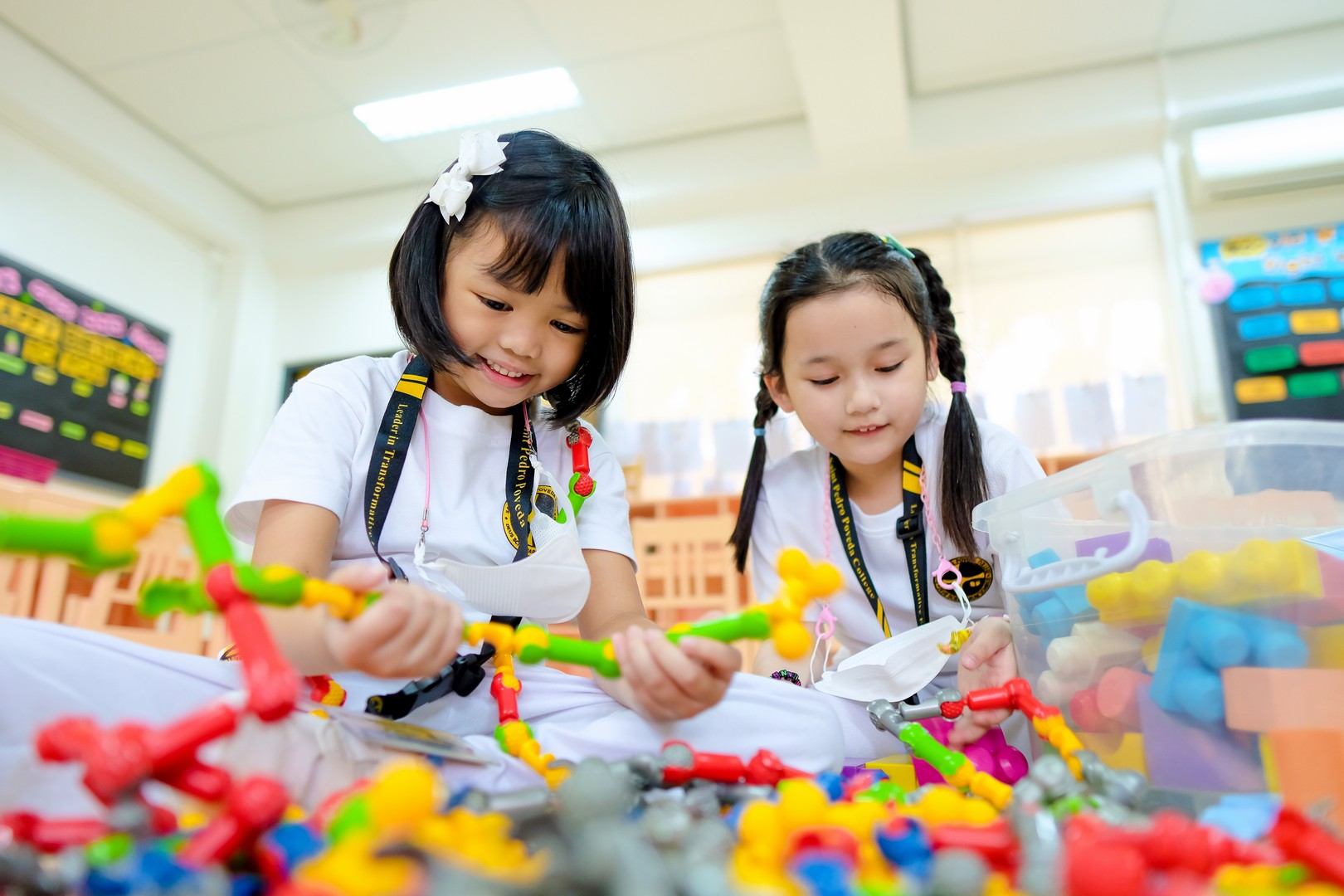
A. Povedan Education, a two-fold Approach
- Philosophy: Pedro Poveda’s pedagogical underpinnings on Knowledge and Virtue and his vision to uphold human dignity for social transformation.
- Methodology: Personalized Education Pedagogy
It values, emphasizes and highlights:
-
- The holistic formation grounded on the school’s Core Values: Christ-centeredness, Excellence, and Commitment
- The principles in the teaching-learning process: creativity, communication and diversity
- The optimal well-being of the students: appreciating the value of each person; sense of belonging – security – purpose; and joy in learning.
B. School Pedagogy – Personalized Education Program (PEP):
- Individual Work (IW)
IW is a research-designed age-appropriate work model, taught at every level and ladderized for progressive advancement. At the start of every session (equivalent to three to four weeks), subject teachers release requirements designed as research work for students to explore and work on within the given time frame.
- Normalization
Normalization is a process that allows students to balance the use of their different faculties. They are given the opportunity to pause, decompress, step back, and reflect on what was accomplished and learned after a learning activity.
- Encounter
The session enables and boosts student participation/ interaction: knowledge exchanged, from what has been researched and learned during IW, and experiences shared.
C. Special Curricular Programs:
- LEAP: Learning Equivalence and Alternatives Program
The LEAP equips Grade school students with skills to go beyond their limits by thinking-out-of-box during fun and inspiring activities. The following programs are designed geared towards enriching student’s academic life:- Keystone Program: This provides richer and varied educational experiences during IW, having greater depth and breadth generally provided in class.
- Springboard Program: This caters to students who may not be performing at par with their capability.
- Sprint Program. This program gears towards differentiation through content, process, product, and learning environment or based on interest and ability.
- Math Enrichment
The Math Enrichment Program provides greater opportunity for mathematically inclined students to maximize their potential and abilities in the subject. - Advanced Placement (AP)
The Advanced Placement program offers university level courses to high school students to prepare them for cognitive skills and discipline that are essential in college. The curriculum of this program is under the auspices of the College Board that regulated Advanced Placement curriculum in the United States.Advanced Placement courses, namely English Literature and Composition, Microeconomics, Macroeconomics, 2D Art and Design, Statistics, and Calculus AB, are offered by the school to address the needs of students who plan to pursue their college degrees outside the Philippines. All Advanced Placement courses require students to stay after regular class hours. - La Lengua y Cultura Española
Saint Pedro Poveda College is one with the Department of Education’s aim to internationalize Filipino students and to make them more globally competitive. As by tradition, the school continues to provide students with knowledge in Spanish culture and skills in language. Learning a third language, as an additional skill, is achieved through the school’s Spanish Program given to Grades 3 – 12.
The school partners with Instituto Cervantes, a non-profit organization founded by the Spanish government, – responsible for promoting the study and teaching of Spanish language and culture. High School students attend Spanish classes under the supervision of teachers from Instituto Cervantes de Manila. All Grade 12 students must take the examination leading to the Diploma de Español como Lengua Extranjera (Diploma in Spanish as a Foreign Language or DELE) which is acknowledged by the Ministry of Education, Culture, and Sports of Spain
For details, click PEP Primer access link: https://bit.ly/PEP-primer2324




